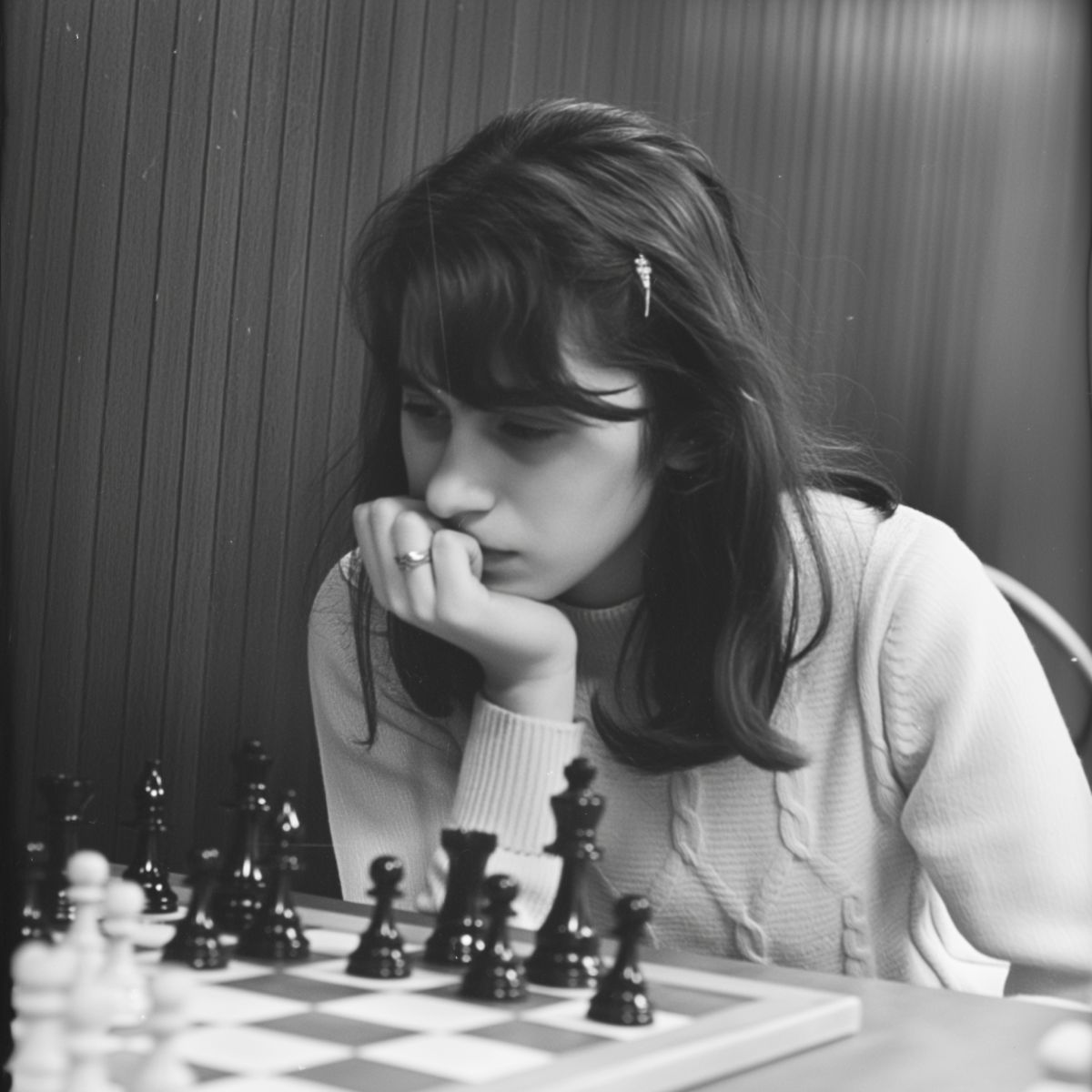
Scorpio: The Death Wish
 Scorpio is the sign draped in the velvet of mystery, laden with the weight of all things untold and unspoken. The sign that seems to have been made out of life’s darkest corners and imbued with a touch of both fire and water. If we dare to venture into its maze, we need to carry with us more than just astrological maps—we need psychological insight. And who better than Freud, the father of psychoanalysis, with his obsession over all things submerged, to help us decode Scorpio’s hidden nature? Freud, the cigar-smoking conjurer of the subconscious, would have looked at Scorpio like a perfectly shaped puzzle of primal urges, shadowy desires, and taboo realms. Scorpio is the embodiment the undercurrent of raw instincts, the unsocialized, savage self that lurks beneath the polished surface of everyday decorum. Freud might sit with us and say in his slow Viennese drawl, “Oh yes, Scorpio… a sign dominated by Eros and Thanatos, life and death drives, sex and destruction—an endless dance of passion and annihilation.” In Scorpio, Freud would find confirmation of his theories, his view of humanity teetering on the edge between desire and doom. The scorpion sting is not just a random image—it’s the embodiment of the unconscious mind. Scorpio is forever grappling with their instinctual side, torn between the need to connect deeply (sometimes obsessively) and the primal fear of vulnerability. Scorpio seeks deep emotional and physical connection but is haunted by the fear of betrayal or loss, leading to its infamous self-protective sting.
Scorpio is the sign draped in the velvet of mystery, laden with the weight of all things untold and unspoken. The sign that seems to have been made out of life’s darkest corners and imbued with a touch of both fire and water. If we dare to venture into its maze, we need to carry with us more than just astrological maps—we need psychological insight. And who better than Freud, the father of psychoanalysis, with his obsession over all things submerged, to help us decode Scorpio’s hidden nature? Freud, the cigar-smoking conjurer of the subconscious, would have looked at Scorpio like a perfectly shaped puzzle of primal urges, shadowy desires, and taboo realms. Scorpio is the embodiment the undercurrent of raw instincts, the unsocialized, savage self that lurks beneath the polished surface of everyday decorum. Freud might sit with us and say in his slow Viennese drawl, “Oh yes, Scorpio… a sign dominated by Eros and Thanatos, life and death drives, sex and destruction—an endless dance of passion and annihilation.” In Scorpio, Freud would find confirmation of his theories, his view of humanity teetering on the edge between desire and doom. The scorpion sting is not just a random image—it’s the embodiment of the unconscious mind. Scorpio is forever grappling with their instinctual side, torn between the need to connect deeply (sometimes obsessively) and the primal fear of vulnerability. Scorpio seeks deep emotional and physical connection but is haunted by the fear of betrayal or loss, leading to its infamous self-protective sting.
Now, while Jungian types prefer to talk about Scorpio’s transformation, the mythical phoenix rising from the ashes, Freud’s approach is far more… tactile. He might argue Scorpio’s real power lies in their unfiltered understanding of human instincts—the unvarnished reality of sex, power, and control. Freud would say Scorpios are those among us who are most in touch with the deep, unconscious urges we all try so hard to suppress. But let’s not leave out the sting in Scorpio’s tail—Freud would have loved this metaphor. Scorpio, after all, is a creature that stings itself if cornered, an act Freud would’ve linked to the unconscious’s capacity for self-sabotage. Scorpio’s self-destructive tendencies, when pushed too far, are an ode to Freud’s death drive, the Thanatos that lurks alongside the erotic, waiting for moments to undo all the passionate intensity they’ve built.
When backed into a corner, they possess this almost compulsive urge to self-destroy rather than submit. It’s as though the very idea of giving up control, even to save themselves, is intolerable. The Scorpio would rather sting itself—choosing destruction on their own terms—than be forced into submission by external forces. Scorpio, at their core, thrives on control—not in a superficial sense of micromanaging others, but in the sense of maintaining emotional, psychological, and even spiritual power over their own life. To lose control is to lose a sense of identity, to face vulnerability in its rawest, most terrifying form. This need for mastery is so deeply ingrained that when circumstances threaten to strip it away, Scorpio would rather burn everything down than allow themselves to be seen as weak or at the mercy of something outside of themselves. In many ways, this is a form of resistance—a refusal to bow to external pressure, even if it means inflicting pain upon themselves. If Scorpio can’t maintain control over a situation, they’d rather destroy it—whether that’s a relationship, a project, or an emotional state—before they feel powerless within it. It’s an extreme response, but one that feels psychologically safer than submission. In relationships, this dynamic often plays out as Scorpio’s fear of vulnerability—the idea that to open up, to expose their innermost feelings, is to relinquish some level of power. They may seem impenetrable at first, keeping others at a distance with their mysterious, cool demeanor. But when someone gets too close, there’s a part of Scorpio that tenses, bracing for betrayal or abandonment, even if it’s unfounded. And here’s where the self-sabotage kicks in. Rather than waiting to be hurt, Scorpio might preemptively sting—pulling away, provoking conflict, or emotionally withdrawing—as a way of regaining control over the situation. It’s the classic “hurt them before they hurt me” tactic, which, while protective, often leaves Scorpio standing alone in the wreckage of what could have been a deeper connection. This behavior speaks to an even deeper fear: the fear of submission. For Scorpio, submission is not simply losing control in a moment—it’s a symbolic surrender of their power, their autonomy, and their sense of self. In Freud’s terms, it’s a kind of ego death, where the individual feels they are being overwhelmed by forces greater than themselves. Scorpios, with their intense need to maintain control over their inner world, cannot abide this. And so, if the choice is between submitting and self-destructing, they’ll choose destruction every time. At least in destruction, they remain the master of their own fate, dictating how the end plays out. It’s the ultimate catch-22 for Scorpio: the closer they get to what they truly desire, the more they fear it, and the more likely they are to sabotage it. It’s as if Scorpio instinctively feels that to let go of control is to face annihilation, so they prefer to do the annihilating themselves, rather than risk being undone by someone else.
Freud and Scorpio might seem like a match made in the smoky salons of deep psychological inquiry, where the atmosphere is thick with suppressed desires and unconscious urges. It’s almost poetic, isn’t it, Freud’s own rising sign was Scorpio? It’s as if was a calling card to dive headfirst into the murky waters of human nature, to explore the tangled depths of our repressed fantasies, fears, and the shadow self. Freud, with his Scorpio ascendant, was not just studying the darker aspects of the psyche; he was living it, channeling this intense energy into reshaping our understanding of who we really are beneath the socially acceptable surface. In fact, Freud’s most influential theories—the unconscious mind, repression, and defense mechanisms—are like the Scorpio handbook.
Scorpios are known for their penetrating gaze, their relentless need to uncover what lies beneath. Similarly, Freud’s entire mission was to pull back the curtain on the mind, to expose the hidden motives driving human behavior, just as a Scorpio would pry open the vault of secrets locked in the psyche. Where others saw polite society and superficial pleasantries, Freud—like Scorpio—saw the simmering cauldron of desire and fear bubbling beneath. The Scorpion itself, a creature living in the shadows, represents perfectly Freud’s fascination with the unconscious—the realm of unspoken truths, suppressed emotions, and the primal instincts we dare not admit to ourselves. Freud’s psychoanalytic practice was essentially a scorpionic act: he would sit with his patients, watching and waiting as they revealed layer by layer of their psychic defenses, their anxieties, their desires. He believed that by digging deep into these dark crevices of the mind, the truth would eventually rise to the surface, like a Scorpion emerging from the dark crevice it hides in, ready to strike.
Freud’s theory of the unconscious mind aligns beautifully with the Scorpio archetype. Just as the unconscious mind is filled with hidden desires, impulses, and memories we repress because they are too painful or socially unacceptable, Scorpio’s energy thrives on this very terrain. It’s the sign that isn’t afraid to dwell in the shadows, to face uncomfortable truths about itself and others. Freud believed our true motivations often lie buried beneath the surface, much like Scorpio’s motivations are often concealed under a calm exterior, ready to surface when least expected. Then, there are defense mechanisms—Freud’s brilliant articulation of how we protect ourselves from emotional pain, guilt, and shame. Scorpio, in its most primal form, knows all about defenses. The sting of the Scorpion is legendary; it’s a self-protective mechanism when feeling threatened or vulnerable. Freud’s theories on repression, denial, and projection mirror the way Scorpio energy can manifest in people—creating walls of secrecy, an intense need for control, and sometimes self-sabotage when faced with vulnerability.
But let’s not forget that Freud wasn’t just about the doom and gloom of human nature—he also believed in libido, the life force, the creative and sexual energy that drives us forward. Scorpio, too, is a sign known for its deep connection to sexual energy, but it’s far more than just physical desire. For Scorpio, it’s the merging of souls, the desire to transcend the self through deep, transformative experiences. Freud’s exploration of libido and the life force mirrors Scorpio’s dual association with both Eros (the life drive) and Thanatos (the death drive). Scorpio exists in this delicate space between creation and destruction, pleasure and pain, life and death.
So, when we consider Freud’s Scorpio ascendant, it’s easy to see why he was so comfortable delving into the taboo, the forbidden, the areas of life we prefer to keep hidden. His theories were radical because they spoke to parts of the human experience polite society often ignores—but Scorpio energy revels in these very things. Freud was, in essence, performing psychological alchemy, much like a Scorpio seeks to transform through the intensity of experience, confrontation, and ultimately, rebirth. The death wish is the shadowy counterpart of the life force, fitting for Scorpio, a sign reveling in duality, living at the knife’s edge between creation and destruction. Scorpio’s obsession with transformation, its fixation on plunging into the abyss of the soul, mirrors Freud’s exploration of Thanatos, the death instinct that creeps silently alongside Eros, our drive for life and connection.
Scorpio is often misunderstood as just intense, but this is surface-level thinking—far too simplistic for such a profound archetype. You see, Scorpio is all about transformation, but transformation isn’t some gentle evolution. Oh no, it’s about burning down the old to make way for the new. It’s death and rebirth, not in the figurative sense, but in the deep, existential sense. Freud’s Thanatos reflects this Scorpionic tendency. Just as the Scorpion, when cornered, will sting itself, Freud believed that within all of us there’s a drive not only to survive but also to destroy—to return to an inorganic state, to undo what has been built.
Freud, ever the pioneer of the darker psyche, saw Thanatos as the instinct toward self-destruction and regression. And what is Scorpio if not the astrological embodiment of this? Scorpios are often drawn toward their own destruction—not because they’re masochists, but because they understand, consciously or unconsciously, that through destruction comes a deeper form of creation. It’s like the phoenix, rising from its own ashes—Scorpio energy requires the death of the old self to birth something more authentic and powerful.
On the one hand, Scorpio craves intimacy, to merge completely with another, to form unbreakable bonds that transcend the physical and move into the spiritual. This is Eros, the life drive, the yearning for deep connection and creation. Yet, at the same time, Scorpio is haunted by Thanatos—the fear of betrayal, the deep-seated suspicion that this connection, this vulnerability, will lead to destruction. So they self-sabotage, retreat, build walls, or, in true Scorpionic fashion, scorch the earth just to be safe. Freud’s psychoanalytic lens is like a mirror to Scorpio’s soul. His method of peeling back the layers of the mind, exploring hidden motivations, and unraveling the psyche is very much akin to Scorpio’s desire to dig deep and expose what lies beneath. Scorpio doesn’t deal in half-truths; much like Freud, they’re interested in what’s real, raw, and often uncomfortable.
Scorpio’s penchant for self-destruction is not some sadistic impulse; it’s a survival tactic. Freud would nod his cigar-smoke-filled approval, for Scorpio, like the human psyche in Freud’s model, knows instinctively that to evolve, one must confront the darkness. It’s not enough to live in the light. To truly understand oneself—to be whole—one must confront the shadow. For Freud, the shadow was the repressed unconscious, and in Scorpio, it’s this internal pull toward destruction and rebirth, the ever-present tension between wanting to live fully and yet feeling compelled to retreat, to control, to burn down the very things they love when threatened.
But, here’s the real revelation: Scorpio, despite its association with Thanatos, isn’t purely about destruction. Scorpio wields these forces to regenerate. Where others see an end, Scorpio sees a new beginning. Transformation is the heart of Scorpio’s journey, and destruction is a tool for clearing the way. There’s something almost beautiful in this destructive tendency; it’s not nihilistic but evolutionary, a necessary sacrifice for the sake of growth. Scorpio’s reminds us that transformation isn’t neat or pretty. It’s messy, uncomfortable, sometimes painful. But it’s also vital. Without confronting the death drive, without facing the unconscious urges we try so hard to repress, we’d be stuck—unable to grow, to evolve, to move forward. And without Scorpio’s willingness to burn it all down, to dismantle the old and unearth the hidden, there’d be no phoenix rising, no rebirth, no deeper understanding of the self.
Here are some more psychological insights concerning the zodiac sign of Scorpio.
Stagnant or tidal, Scorpio is very peculiar. Barbault points out that the Scorpio is the only animal that can kill itself (whether deliberately or not) by stinging itself with its tail…Having Mars as its ruler, it shows two main martial qualities: aggressiveness and eroticism. Barbault writes that “the most murderous sign is also the most fecund. “And to explain the apparent contradictions in Scorpio he once again, as with the preceding sign Virgo, calls in the anal complex. The Scorpio infant gets its first taste of power on the pot – and it will never look back. By Loius MacNeil

Beyond the pursuit of pleasure lies an equally powerful urge toward death, a magnetic pull toward entropy. This darker instinct is, in Freud’s own words from Beyond the Pleasure Principle, an integral part of the psyche—a drive he called Thanatos, the death instinct, forever in tension with its life-affirming counterpart, Eros. Freud, in typical fashion, saw humans as creatures of paradox. On one side, you’ve got the pleasure principle (Taurus)—the idea that we’re all wired to seek joy, connection, creativity, and survival. Taurus and Scorpio—two sides of the cosmic coin, locked in opposition. If Scorpio embodies the dark, death-defying instincts of Freud’s Thanatos—the destructive, transformative urge—then perhaps Taurus, its zodiacal opposite, would naturally represent Freud’s Eros, the life force, the pleasure principle itself. Taurus, ruled by Venus, is all about comfort, sensuality, and the enjoyment of life’s pleasures. It’s the sign that wants to be here, grounded in the moment, savoring the fruits of the earth—whether it’s through touch, taste, or the satisfaction of creating stability and beauty. Freud’s pleasure principle fits hand in glove with this Taurus energy. Lovely stuff, right? But then Freud drops this bombshell: after life’s desires are satisfied, there’s this destructive, regressive force that creeps in, yearning not for more, but for less—less complexity, less conflict, even less life itself. This isn’t just a morbid fascination with death. No, Freud’s death instinct is more subtle; it’s a desire to return to a state of inanimacy, a kind of psychic undoing of everything we’ve built. It’s like the universe’s inherent tendency toward chaos finding its echo in our own minds.
For Scorpio, our dark angel of the zodiac, Freud’s death instinct must sound eerily familiar. Scorpio’s entire mythology is steeped in cycles of death and rebirth, an endless dance between destruction and regeneration. Just as Freud saw the death wish as a way to release tension after life’s cravings have been fulfilled, Scorpio’s energy is drawn toward clearing the slate, burning down the old to allow something new to rise. This is why Scorpios, in all their intensity, often flirt with the edge of things—whether it’s relationships, emotions, or even life itself. They are forever aware of the impermanence of it all, sensing that in every moment of life, there is the seed of death, the promise of transformation through destruction.
But the death instinct isn’t just about literal death. It’s about the dismantling of the ego, the unconscious pull toward self-sabotage, and the often unrecognized yearning to return to a simpler, more primal state. This plays beautifully into Freud’s later work, Civilization and Its Discontents, where he argues that civilization itself is a fragile construction, built on the back of suppressed instincts. Humans, Freud said, are like “savage beasts” at their core, filled with raw impulses that, when stifled too much by societal norms, build up like a pressure cooker. Eventually, something’s got to give. In this tension between the individual’s primal urges and the strictures of society, we find the seeds of internal conflict, or what you could call the modern human dilemma. You’ve got all these instincts bubbling beneath the surface—sexual urges, aggression, desire for freedom—but society’s not having any of that, is it? We’re told to behave, conform, repress. And what happens when we do? According to Freud, when these energies are locked away too tightly, they find destructive outlets. If you can’t express them consciously, they’ll come out sideways—in rage, in violence, in self-sabotage.
Now, think of Scorpio. It’s the sign that refuses to keep things on the surface, the one most aware of what happens when you bury your instincts too deeply. Scorpios are experts at detecting these undercurrents, and they often live in that tension between what society expects and what the raw, unfiltered self desires. In many ways, the Scorpio archetype and Freud’s view of the human condition are mirrors of each other. Both understand that repressing the darker side of life doesn’t make it go away—it only strengthens it. This leads us to another crucial piece of the puzzle: inner conflict. Freud recognized that the mind is in a constant state of turmoil, caught between the id (those primal instincts), the ego (the rational self), and the superego (societal rules and morals). Scorpios live this conflict daily. They embody the struggle between their intense desires, emotions, and drives, and the pressure to control, suppress, and conform to what the world expects of them. The result? An internal war that often leads to some form of psychic explosion—whether it’s through transformation, healing, or, on the darker side, self-destruction.
The beauty of Freud’s work is that it doesn’t shy away from these uncomfortable truths, much like Scorpio. It tells us that yes, we are creatures of pleasure and connection, but we’re also driven by the need to tear down, to dismantle, to confront the void within ourselves. And this doesn’t mean we’re doomed to chaos and destruction—far from it. Scorpio’s energy, show us that facing these forces head-on, accepting them as part of the human experience, is the key to transformation. When we acknowledge the death wish, when we admit that part of us longs to return to the dust, we gain the power to choose how we respond. We can let it consume us, or we can harness it to clear the path for something new, something deeper, something more authentic.
So, what does all of this mean for the modern psyche? Well, Freud, ever the realist, would say that we can’t avoid our primal drives—they’re embedded in who we are. And Scorpio, with its ever-watchful eye on the soul’s depths, knows this better than most. But rather than fearing the darker aspects of our nature, we can learn to work with them, to channel this destructive energy into something transformative. After all, it’s only when we confront the parts of ourselves we’re most afraid of—the chaos, the rage, the urge to tear down—that we can truly begin to rebuild.
The Scorpio is often stuck in a conundrum, it is the master of concealment, the guardian of emotional fortresses, and yet, at the same time, deeply in need of intimacy and connection. Freud would have had a field day with this dynamic! This capacity to control emotions, to bury them beneath a composed exterior—are like an astrological embodiment of Freud’s theories on repression and the unconscious mind. Scorpio’s natural tendency to bottle things up, driven by an almost instinctual need for self-preservation, mirrors Freud’s view that humans often suppress painful or socially unacceptable emotions, tucking them away in the subconscious where they can quietly fester.
For Freud, this act of repression is a survival mechanism—our way of keeping control over the chaotic forces of the psyche. But as with all things suppressed, they don’t just vanish; they lurk beneath the surface, building pressure until they demand release. And Scorpio, being so acutely aware of their own depth, understands this intuitively. They know that their emotions, if left unchecked, have the power to overwhelm, to tear through the carefully constructed facade they’ve built. This is why Scorpios become such masters of control, not out of coldness or indifference, but as a way to safeguard themselves against the potential for emotional overwhelm.
The Scorpio mind is like a steel trap—a place where emotions are carefully compartmentalized, locked away until they’re safe to be expressed. It’s a brilliant survival strategy. Freud might compare it to a pressure cooker, where the tension builds with every suppressed thought, every hidden emotion, until one day—boom! The eruption catches everyone by surprise, except maybe the Scorpio themselves, who probably saw it coming from miles away. This is Thanatos at work again—the death drive lurking, the unconscious pulling at the threads of repression until the emotional levee breaks. Scorpio’s intensity, when suppressed, can manifest as a kind of emotional neurosis. They might become hyper-vigilant, suspicious, or consumed by control as a defense mechanism against vulnerability. After all, vulnerability is risky for Scorpio—revealing their emotions, their true selves, is an act of immense trust, and for Scorpio, trust is often hard-won and easily broken.
But here’s where the beauty of Scorpio lies, and where Freud’s theory of catharsis comes into play. Scorpio, despite all this repression and control, needs emotional release. It’s not just a desire—it’s a necessity for their psychological and spiritual survival. Freud believed that once repressed emotions are brought to the surface, once they are acknowledged and expressed, they lose their power to cause harm. And Scorpio knows this in their bones. It’s why, despite their secretive nature, they will open up to a select few—their chosen confidants, the ones they deem trustworthy enough to hold their truth without judgment. This selective sharing isn’t just a survival tactic—it’s a form of controlled release, a way for Scorpio to release some of the pent-up emotional energy before it turns destructive. Like a pressure valve being gently turned, Scorpios know that they need to release the steam, but they’ll do it on their terms, with the people they trust implicitly. This act of sharing is deeply intimate for them—it’s not just small talk or casual venting; it’s a soul-baring experience that requires complete safety. When a Scorpio lets you in, it’s because they’ve assessed you, weighed the risks, and determined that you’re capable of handling their depth.
So, while the world might see Scorpio as secretive or aloof, beneath that composed surface is a cauldron of feeling—a complex web of emotions that are carefully managed, not out of fear, but out of wisdom. Scorpio knows the value of their emotional energy, and they won’t waste it on those who can’t appreciate its depth. Freud would likely admire this as a sophisticated form of psychic management, a way to maintain emotional equilibrium while still engaging deeply with life.

Scorpio is eternally caught between concealment and release, power and vulnerability, control and chaos. The very essence of this sign is a tug-of-war between keeping those intense emotions bottled up and the overwhelming need to let them erupt in fiery catharsis. The psychology of Scorpio’s emotional landscape is akin to staring into the abyss—a space where the subconscious forces you bubble and writhe beneath the surface, creating a powerful tension. And it’s this tension, this constant internal pressure, that gives Scorpio both its enigmatic powers and its deeply felt struggle. Freud would have seen this Scorpio dynamic as the perfect illustration of the repressed unconscious, where emotions are banished from conscious awareness because they’re too raw, too dangerous, too taboo. These suppressed feelings don’t disappear, though—they fester, growing more volatile the longer they’re ignored.
The scorpion is a symbol of secrecy and self-protection, but it’s also a creature that, when cornered, will sting itself, unable to control the destructive impulse when the pressure becomes unbearable. Let’s break it down a bit: Scorpio’s fear of losing control isn’t just about self-preservation; it’s about self-definition. Scorpios are keenly aware that beneath their composed exterior lies a reservoir of intensity—passion, rage, desire, fear—that, if unleashed carelessly, could obliterate everything they’ve built: their relationships, their sense of self, their reputation. The fear of losing control over these subterranean forces is deeply tied to their anxiety—an anxiety not just of feeling out of control, but of being seen in that state of vulnerability. For Scorpio, this could be interpreted as the ultimate betrayal of self.
Freud might say that this need for control is rooted in the ego’s struggle to keep the darker impulses of the id in check. Scorpio, more than any other sign, is aware of this internal battle. They know they have the power to destroy (whether it’s themselves or others), and so they keep their emotions under tight lock and key. But the issue here is that emotions, especially intense ones, demand release. They want to be acknowledged, expressed, given voice. When Scorpio suppresses these feelings for too long, it’s like sealing a volcano—it’s not a question of if it will erupt, but when.
Scorpios, in their effort to maintain control, can become isolated, retreating from others out of fear that their emotions might slip through the cracks. They build walls, not out of malice, but out of sheer necessity—because letting people in, exposing their true emotional core, risks them losing that delicate balance. The defensive demeanor Scorpios are known for isn’t just armor; it’s survival gear. Beneath it lies an incredibly rich emotional world, but they need to be sure that whoever they let into that world can handle its intensity. If not, the consequences could be catastrophic—for both Scorpio and those around them. This brings us to another key tension for Scorpio: the fear of losing love, respect, and self-esteem if their hidden emotions come spilling out. In Scorpio’s mind, the uncontrolled release of their emotional energy is tantamount to exposing weakness. If they let others see the full extent of their rage, jealousy, vulnerability, or passion, they risk being judged, rejected, or seen as unstable. The irony here is that Scorpio craves deep, authentic intimacy more than most—they yearn for relationships where they can be their true selves, where they can share their innermost feelings without fear of reprisal. But this yearning is in constant tension with their fear of being emotionally overpowered or, worse, betrayed.
In a sense, the Scorpion archetype represents this battlefield where opposing forces clash. On one side, there’s the instinct to protect, control, and guard their emotional fortress. On the other side, there’s the desire to tear down those walls and reveal their true self, warts and all. This internal battle can create immense psychological tension, manifesting in forms of self-sabotage—lashing out at loved ones, retreating into isolation, or engaging in risky behaviors that ultimately harm themselves. Freud would call this the workings of the Thanatos drive, Scorpio’s subconscious way of trying to release the tension through acts of self-destruction or controlled chaos.
But here’s where the beauty of Scorpio’s journey comes into focus: despite this tension, or maybe because of it, Scorpios have an unparalleled capacity for transformation. Once they face their fears—once they learn to trust themselves enough to let those emotions out in a healthy, controlled way—they can become some of the most emotionally intelligent and resilient people in the zodiac. Their ability to confront their own darkness, to face the parts of themselves that others would rather ignore, is what gives Scorpio its transformative power.
Freud believed that by bringing the unconscious to light—by confronting repressed emotions and impulses—we could achieve greater self-awareness and psychological freedom. For Scorpio, this is the essence of their path. The goal isn’t to repress or deny those emotions, but to channel them constructively. Scorpios who learn to master their emotional depths without fear of losing control can become incredible forces of healing and empowerment, both for themselves and for those they allow into their inner world. The Scorpio struggle is a universal one, albeit played out with greater intensity. It’s the battle between control and surrender, between repression and expression, between fear and trust.
For Scorpio, existence is nothing less than a battlefield, where victories are hard-won, and defeats can shatter the soul. Yet, even in the shattering, there’s something fiercely beautiful, for Scorpio doesn’t simply endure these experiences—they embrace them, knowing that through destruction, they find the seeds of their own rebirth. The life of a Scorpio is not for the faint of heart; it’s a journey into the darkest recesses of the self, where every crisis is an invitation to rise stronger, deeper, and more genuine. They understand, often on an intuitive level, that life is a series of transformative moments—each one a test of their mettle, forcing them to dive into the shadows of their psyche, where the light doesn’t reach. But here’s the key: Scorpio needs these moments. They don’t just passively endure hardship; they actively seek the depths. It’s as if they know that to truly understand themselves, they must first be broken open. The superficialities of life won’t do. They need the real, the raw, the visceral experience of confronting the darkness, because it’s only in those depths that they find the truth of who they are.
Scorpio’s life is a series of deaths and rebirths, both literal and metaphorical. Each trial, each heartbreak, each moment of crisis, is a kind of death—a stripping away of the old self, the outdated beliefs, the protective layers that no longer serve. And while this process is painful (and for Scorpio, pain is often a companion), it’s also necessary. They understand, perhaps better than any other sign, that true transformation requires destruction. Something must be purged, burned away, for something new to take its place. This brings us to the idea that for Scorpio, life isn’t about avoiding difficulty; it’s about leaning into it. Scorpio perceives challenges not as nuisances but as the crucibles that forge their identity. These trials don’t just test them—they refine them. Each moment of suffering, each confrontation with their shadow, becomes a catalyst for growth. It’s not enough for Scorpio to simply survive. They must transcend, evolve, and rise from the wreckage of their own experience, sharper and wiser for it.
Fear, of course, plays a central role here, particularly the fear of loss—of control, of love, of the self. Scorpio’s life is often marked by an acute awareness of the impermanence of all things. They know that what they hold dear can be taken away in an instant, that life can shift dramatically without warning. This awareness drives them to grip tightly to what matters but also instills in them the paradoxical need to let go when the time comes. For Scorpio, the ultimate challenge is not just to confront external crises but to face the internal battle: Can they release what no longer serves them, even if it feels like a part of their soul is being torn away?
In this sense, the Scorpio journey is one of learning to master the art of letting go. They must confront their fears head-on and surrender to the cycles of death and rebirth that define their existence. This doesn’t mean giving up, but rather accepting that some things must end, some relationships must die, some parts of the self must be sacrificed for growth to occur. It’s an act of profound courage, for Scorpio’s instinct is to control, to hold on, to fight to the bitter end. But true transformation for Scorpio comes in the moment of surrender—when they allow the fire to consume them, knowing that on the other side of that destruction lies rebirth. What’s remarkable about Scorpio is their inner strength. While they may appear intense, secretive, or even brooding on the surface, this exterior hides an unshakable power. They are not afraid of the dark—they are forged in it. Scorpio understands, in a way that others might find difficult to grasp, that darkness is not the opposite of light, but its necessary counterpart. You cannot have one without the other.
In this constant cycle of death and rebirth, Scorpio’s identity is never static. They are in a state of perpetual evolution, always shedding old skins, letting go of outdated ways of being, and moving into the unknown with a kind of fearless resolve. For them, life is not a linear path but a spiral—a journey that takes them deeper with every turn, always moving toward greater self-awareness, always moving toward their own personal truth.

The creative fire of Scorpio is a force that doesn’t dabble in surface-level expression but plunges into the very core of existence, drawing out something raw, intense, and transformative. This creative energy is more than just talent or skill; for Scorpio, it’s a way of channeling their intensity, a form of alchemy where their emotional and psychological depths are transmuted into something that has the power to move and shift the world around them. Whether they’re creating art, uncovering the hidden truths of human nature, or involved in research, Scorpios don’t just create—they immerse themselves in the process, pulling from the well of their own internal mysteries. This is what makes a Scorpio’s creative output so magnetic. It carries with it the weight of their inner world—their battles, their desires, their confrontations with the darkness. You’re not just looking at a painting or reading a story when you encounter Scorpio’s work; you’re being invited into a hidden world, a place that’s been forged in the fires of emotional intensity and psychological exploration. Their creations are alive with meaning, complexity, and that ever-present Scorpio mystique.
Now, let’s talk about this mystique, this aura of intrigue Scorpios seem to wear so effortlessly. It’s not something they consciously cultivate, mind you—it’s just part of who they are. There’s always more to a Scorpio than meets the eye, and they like it this way. They are masters of the subtle, often revealing just enough to draw people in, but never so much that they become an open book. This creates a kind of magnetic pull, a fascination that keeps people wanting to know more, even though the deeper layers of Scorpio’s soul are kept under lock and key, revealed only to the very few who have earned their trust. Scorpio’s complexity stems from this blend of contradictions that coexist within them—intense passion and emotional control, fierce loyalty and a tendency toward secrecy, a desire for connection paired with the fear of vulnerability. They can be both compassionate and ruthless, creative and destructive, vulnerable and closed off, all in the same breath. You think you’ve figured them out, only to discover a new layer, a hidden depth that challenges your understanding of who they are.
This complexity seeps into everything Scorpio does. In relationships, they can be both deeply intimate and somewhat distant, always holding something back, even from those they love the most. In their work, they’re capable of extraordinary focus, often obsessing over a project until it’s perfect, their passion driving them to explore everything down to its core. In their creative outlets, whether through writing, art, or research, Scorpio’s work reflects their inner world—a world where opposites clash and meld, where the light and dark dance in constant tension. It’s no surprise Scorpios are drawn to fields where mysteries are unraveled—psychology, detective work, investigative journalism, even the healing arts. These are all realms where they can use their keen insight and unrelenting focus to get to the bottom of things, to uncover truths that others might miss.
For Scorpio, solving a mystery isn’t just about finding answers—it’s about understanding the deeper forces at play, the motivations, the hidden currents that shape the surface-level events. This is where their natural affinity for delving into the depths serves them well. They’re not afraid to look at the things most people shy away from—the painful, the taboo, the unspoken. In fact, they thrive on it. In the arts, too, Scorpio’s creative process is one of exploration and transformation. Their work often has an edge to it, a sense of emotional risk, because they’re not interested in creating something that’s only beautiful or aesthetically pleasing. They want to evoke something—a feeling, a question, a revelation. They want their audience to feel the impact of their work, to walk away from it changed in some way. And yet, despite all this intensity, Scorpio remains a mystery.
Part of their creative genius lies in the fact that they never fully reveal themselves. Even when they share their innermost thoughts through art or writing, there’s always a part of them that remains hidden, a piece of their soul that they keep protected. This is why their creative output feels so rich, so layered—you sense that there’s more to the story, more to the painting, more to the music than what’s being shown on the surface. There’s always this lingering sense of the unknown, a feeling that something profound is happening just beneath what you can see. This enigmatic quality is what makes Scorpio such a fascinating figure in any creative field. They have a way of drawing people in, inviting them to explore not just the work itself, but the deeper themes and emotions it carries. Their art becomes a portal to another world, a place where the boundaries between the conscious and unconscious blur, and where the audience is forced to confront their own inner mysteries. And this is exactly what Scorpio wants—not to give you easy answers or surface-level beauty, but to provoke, to challenge, to transform.







 Venus-Pluto Synastry: A Love So Powerful That It Might Just Kill Them
Venus-Pluto Synastry: A Love So Powerful That It Might Just Kill Them
 Uranus Transits 8th the House: Rebirth from Chaos
Uranus Transits 8th the House: Rebirth from Chaos
 Mars Conjunct Pluto Synastry
Mars Conjunct Pluto Synastry
 Uranus Transits: 1st House: Winds of Change:
Uranus Transits: 1st House: Winds of Change:
 Sun Conjunct Pluto Synastry: Enlightening or Annihilating
Sun Conjunct Pluto Synastry: Enlightening or Annihilating
 Venus Conjunct Pluto Natal Aspect
Venus Conjunct Pluto Natal Aspect
 Uranus in the 2nd House: The Price of Freedom
Uranus in the 2nd House: The Price of Freedom
 Uranus Transits the 4th House: The Chaotic Path to Personal Inner Growth
Uranus Transits the 4th House: The Chaotic Path to Personal Inner Growth
 Transiting Uranus Trines Mercury: Through New Eyes
Transiting Uranus Trines Mercury: Through New Eyes
 Flash Forward: How Uranus Reveals Your Future Before You’re Ready
Flash Forward: How Uranus Reveals Your Future Before You’re Ready
 Uranus Transits Mars: My Eco-Lifestyle Changes
Uranus Transits Mars: My Eco-Lifestyle Changes
 Mercury in the 9th House: The Mystic Messenger
Mercury in the 9th House: The Mystic Messenger
 Scorpio’s Cold Withdrawal
Scorpio’s Cold Withdrawal
 The Neptunian: Highs, Heartache, and the Water Slide of Disclosure
The Neptunian: Highs, Heartache, and the Water Slide of Disclosure
 Uranus Transits Mars: My Carbon Footprint Intervention
Uranus Transits Mars: My Carbon Footprint Intervention
 Sun Square Pluto Synastry: You’ve Got That Power Over Me
Sun Square Pluto Synastry: You’ve Got That Power Over Me
 Venus Trine Pluto: Dark Desires
Venus Trine Pluto: Dark Desires
 Mars in the 12th House: Are You a Passive Victim of Weird Energies?
Mars in the 12th House: Are You a Passive Victim of Weird Energies?
 Saturn Square Pluto Natal Aspect
Saturn Square Pluto Natal Aspect
 Pluto in Aquarius: Collective Welfare
Pluto in Aquarius: Collective Welfare